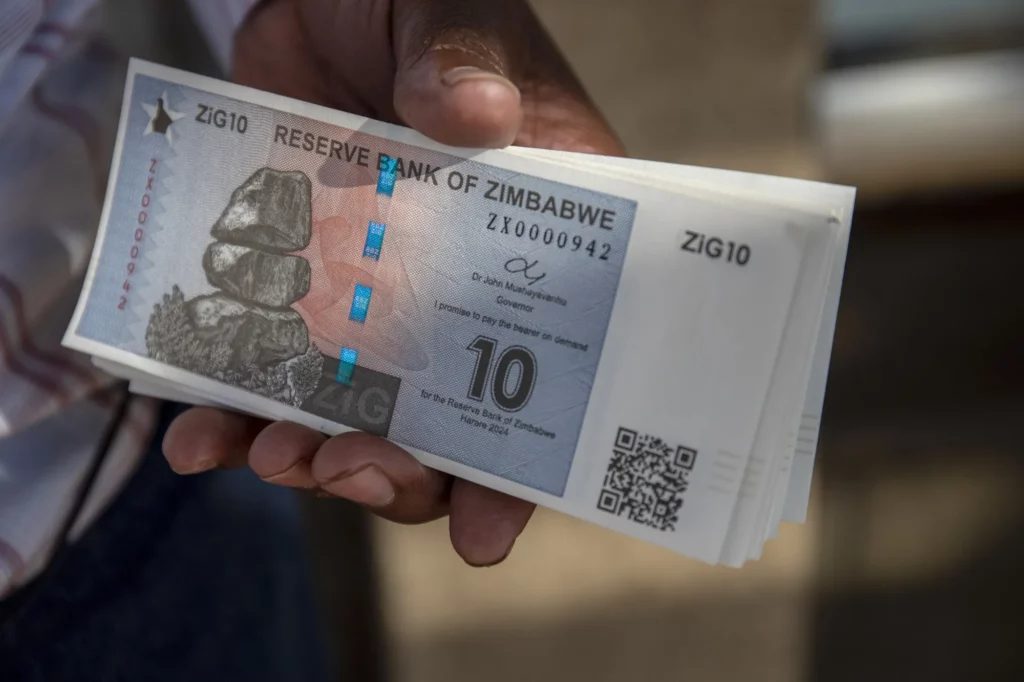Zimbabwe’s gold-backed currency, the ZiG, experienced its first notable rise against the U.S. dollar in more than two weeks.
This rare appreciation is largely credited to decisive actions by Zimbabwe’s central bank, which devalued the ZiG by 43% in late September and raised interest rates from 20 to 500 basis points to control inflation and manage currency volatility.
The recent adjustments have shifted the official exchange rate of the ZiG to about 27.99 against the dollar, with parallel market rates dropping from 40-50 to around 35-40. This appreciation signifies a cautious resurgence of faith in the ZiG’s stability, supported by Zimbabwe’s government efforts to establish a sustainable, reliable currency.
Highlights
- ZiG Currency Gains: Zimbabwe’s gold-backed currency, the ZiG, has shown rare gains against the U.S. dollar, attributed to stringent monetary policies by the central bank.
- Global Economic Shifts with Trump’s Victory: Donald Trump’s U.S. presidential win introduces new uncertainties for Africa, as his protectionist trade policies could impact U.S.-Africa trade and partnerships.
- Zimbabwe’s Economic Reforms: Zimbabwe’s government is bolstering the ZiG by implementing policies to increase demand, aiming for long-term stability.
Government Actions to Support the ZiG
Zimbabwe’s Ministry of Finance is expected to announce further measures aimed at increasing the demand for the ZiG. Proposed changes include requiring the use of the currency for paying utilities, local duties, and council fees.
These interventions, in tandem with tightened monetary policies, are intended to foster a stable currency and bolster public confidence.

Industry Insights: Impact of Trump’s Election Win on African Economies
With Donald Trump’s victory in the U.S. presidential election, African leaders and businesses are closely assessing the potential implications for trade and economic relations with the U.S.
Trump’s known stance on protectionism may lead to heightened import tariffs on certain countries, especially those with strong trade ties to China. As China is Africa’s largest trading partner and a key financier, Trump’s policies could have a ripple effect on African economies, including Zimbabwe.
Additionally, the reauthorization of the Africa Growth and Opportunities Act (AGOA), which enables duty-free exports from Africa to the U.S., may be at risk under Trump’s administration. This shift could impact economies such as South Africa, whose goods benefit significantly from access to the U.S. market.
Conversely, Trump’s support of cryptocurrency and decentralized finance could present unique opportunities for African countries exploring fintech and digital currency initiatives, especially those like Zimbabwe working to strengthen their own currencies.
Zimbabwe’s Currency Stability Efforts: Will the ZiG Endure?
This recent upturn in the ZiG’s performance is the latest in Zimbabwe’s ongoing attempts to achieve a stable national currency.
Over the past 15 years, the country has faced repeated currency instability, including periods of hyperinflation and failed monetary reforms. The success of the ZiG now hinges on the sustained implementation of economic policies and the effective management of demand for the currency.







